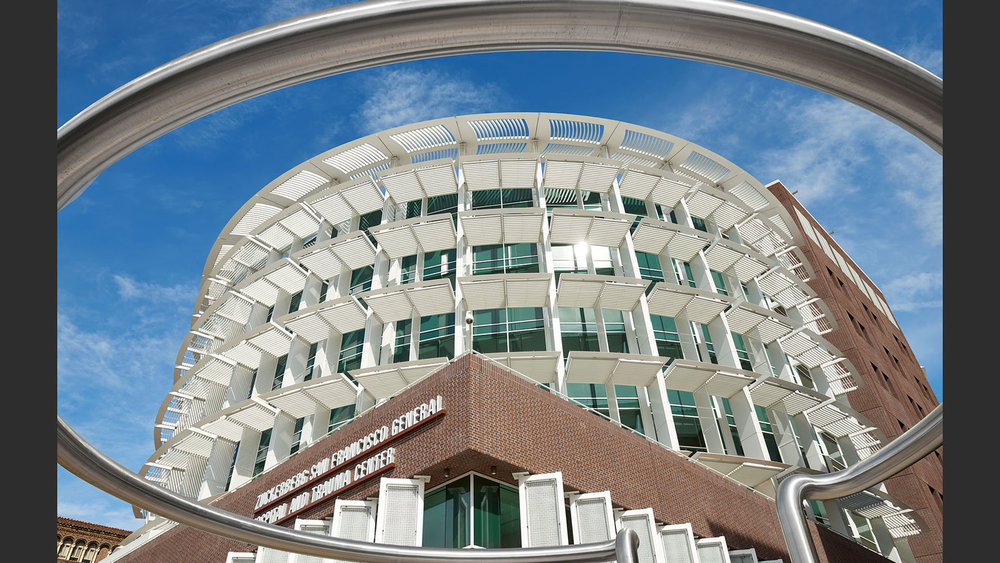Making it Rain (or not)
The climate in San Francisco involves more rain and clouds than I anticipated. The rain, albeit wet and uncomfortable, I can stomach, but sometimes it seems that the threat of the rain is just as bad. Two of our housemates here get headaches or other pains when heavy clouds collect; the threat of precipitation is enough to bully their joints. Our friend who is awaiting surgery, particularly, gets affected by the change in the air pressure. For those of you who receive our (Matt’s & my) prayer updates, you know that our team has spent the better part of three weeks fighting for one of our friends to get his surgery. For friends just tuning in: one of our friends needs surgery for a much life-altering, if not life-threatening, condition. His surgery, scheduled back in September of 2016, should have taken place Thursday, February 2nd.
Instead, he received a call from the nurses at the surgery clinic on the Friday (it’s closed on weekends) at 3:50pm (they stop answering the phones at 4pm) preceding his surgery, telling him that they were cancelling his surgery for an unspecified reason, and that the surgery would probably be rescheduled sometime in June. We learned when he arrived upstairs, sputtering and distraught.
After a flurry of calls and bounce-arounds among the local hospital departments, a brief call with the surgeon himself, and a few broken promises for calls back, we resolved to show up at the hospital in person and see what we could get done in the face of the bureaucratic beast.
We gathered at 8:15 on a Wednesday morning, the day before the surgery should have taken place. I had asked Matt to wear his white pastor’s collar. We trudged uphill, the client, the clergy, and the caller. On the way, our friend spoke of his previous dealings with the hospital. They had moved his surgeries and pre-op appointments multiple times.
I thought back to my call with the doctor. “I appreciate that you’re trying to advocate for him,” his baritone voice had gruffed out on the phone, “he’s a difficult patient and a difficult case. He hasn’t shown up for appointments until a few months ago.”
I had laughingly reported to the doctor that he had probably started appearing at appointments more consistently after securing housing (he had moved into our house).
We arrived at the almost-empty clinic at about a quarter to nine. Quickly, a line formed at the check-in window, despite the fact that no nurse arrived to address it. We waited. Others trickled into the office, peering around the check-in counter, occasionally calling for a nurse, before taking their seat. Realizing that I had seen the faculty offices on our way in, I left the two men in the waiting room to see if I could find the surgeon’s assistant, who had treated me kindly over the phone. I buzzed the offices and waited until someone let me in, and I found the desk. I chatted with her, asking if she liked any particular treats I could thank her with. She laughingly rebuffed the proposal.
Suddenly, a tall (and I mean tall, friends, probably like 6’5”) man strode past the cubicles to his office. Having stalked this man online via faculty pages and surgeon reviews enough, I immediately recognized the Doctor. I tend to think of myself as a confident person, but found myself gaping a bit at the mountainous man before finding some inner gumption and introducing myself.
“Hi, I’m Elizabeth, I’m the one who’s been working with your patient and trying to find a way for us to get him his best care.”
“Oh, that’s you,” he said, although I couldn’t distinguish incredulity from weariness or wariness in his voice. “He’s a difficult case, a difficult patient. I can’t find any way to fit him into the next couple weeks.” He related about the different schedules he had to slog through to coordinate the surgery, that it was a long surgery, for about 30 seconds. His voice boomed down the foot of space between our heads. It felt a bit like my head was in a bell, although I knew he wasn’t trying to be unkind.
“I want him to be an easy patient for you,” I broke in when he paused, attempting to ooze winsomeness and genuity, “thank you for trying to work him in. I want to know any way I can help so he can follow your instructions. I hope you have a wonderful day.” I bowed slightly to him and his assistant, and walked back to the boys, releasing a long, slow, exhale.
We spent another hour or so at the hospital, talking to a nurse coordinator, who had no reason for the surgery cancellation but offered some kind condolences, and visiting the patient advocate, who suggested we file a complaint. Our friend didn’t want to do that.
We left. On the way home, our friend recounted more of the interactions he’d had at the hospital, including the times he had talked to the nurse coordinators, the patient advocate, and (for better or worse), his would-be surgeon. “Do you know how differently they would talk to me if you guys weren’t with me?” he said ruefully after a bit, “I know what I look like and how they treat me.”
He was of, course, pointing out the obvious. Hadn’t I asked Matt to wear a collar? Hadn’t I dressed up to look more professional? Privilege is a funny thing, a weight that hangs much like a rain cloud. I think often, it’s easy for me to imagine that people with less privilege don’t always notice it. But, like a cloud in San Francisco, we all notice when the sun gets taken away, or at least used up by someone else nearby. Its mere presence can cause a noticeable change, if not discomfort.
We’re still waiting for the surgery to be rescheduled. Still waiting from a call back from the nurses, the doctor’s office. I’m still mulling what it means to know the cloud that comes with me, and figure out how to make it rain when needed.

